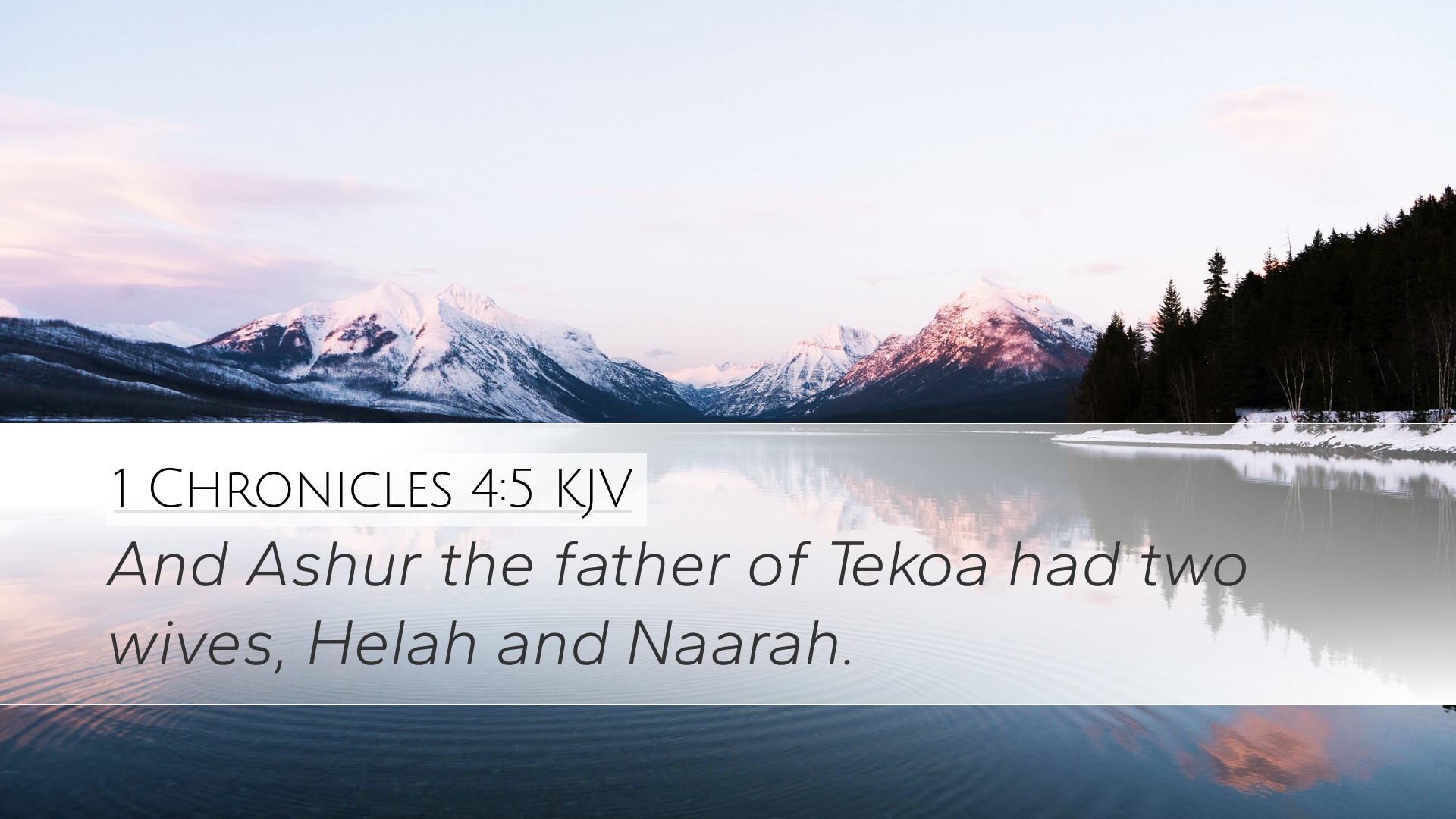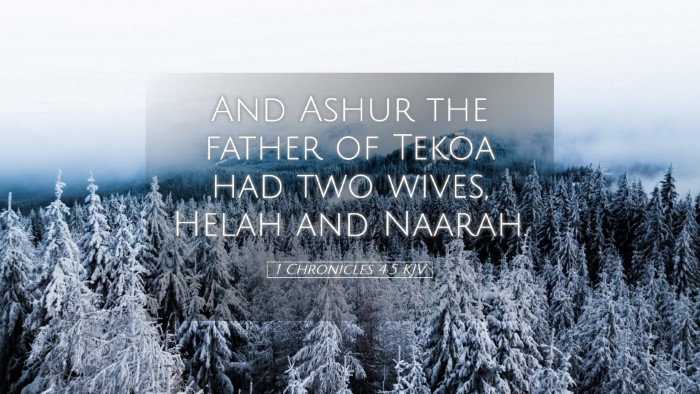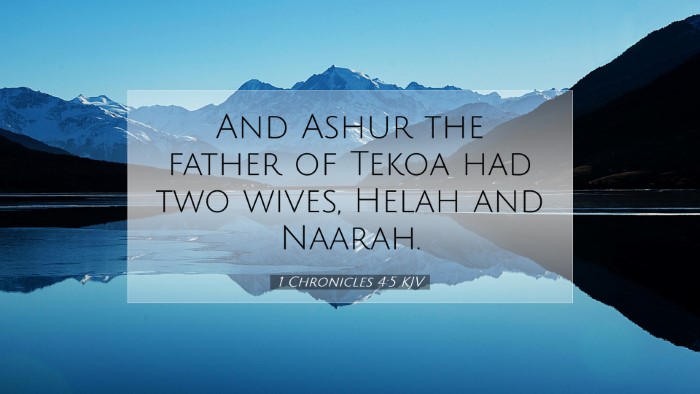Commentary on 1 Chronicles 4:5
Verse Context: 1 Chronicles 4:5 states, "And Ashhur, the father of Tekoa, had two wives, Helah and Naarah." This verse introduces Ashhur within the genealogy of the tribe of Judah, emphasizing the importance of lineage and family connections in the Jewish understanding of identity and heritage.
General Overview
The verse belongs to a larger genealogical section within 1 Chronicles, which meticulously records the descendants of Judah. The Chronicles, traditionally attributed to Ezra, focuses on the history of Israel from a priestly perspective, often highlighting themes of restoration and covenant faithfulness following the Babylonian exile.
Insights from Commentators
Matthew Henry's Commentary
Matthew Henry emphasizes the significance of the genealogical lists in Scripture. He remarks that such records not only preserve the names of individuals but also illustrate the unfolding plan of God through covenantal history. He outlines that the listing of Ashhur and his two wives serves to showcase the diversity and complexity of family structures in ancient Israel.
- Family Structures: Henry notes that Ashhur's two wives, Helah and Naarah, reflect the custom of polygamy in the Old Testament, indicative of social and cultural practices of the time.
- Importance of Lineage: He points out that genealogy was vital for understanding one's standing in the community and God's narrative, as it establishes a connection to the promises made to Joseph and Judah.
- Typological Significance: Henry also touches on the typological implications of names and relationships within genealogies, seeing in Ashhur's lineage a foreshadowing of God’s redemptive purposes.
Albert Barnes' Notes
Albert Barnes adds a historical context to the verse, clarifying that the genealogical record serves dual purposes: tracking the lineage of the tribes and establishing rights to land and heritage. He interprets Ashhur as a notable figure in the tribe of Judah, possessing degrees of leadership and significance.
- Land Rights: Barnes indicates that the mention of Ashhur's family is crucial in understanding the tribal allocations of land post-exodus, tying the names directly back to their territorial claims.
- Cultural Significance of Names: He explains the meanings of the names Helah and Naarah, suggesting they bear specific cultural significance that can be related to fertility and blessings, reflecting God's providence in family matters.
- Literary Structure: Barnes also discusses the literary structure of genealogies and how they serve as a means to unite the history of the Israelites with their current identity and covenantal responsibilities.
Adam Clarke's Commentary
Adam Clarke takes a more analytical approach, examining the meanings and the implications of the genealogy itself. He focuses on the duality of Ashhur's marital situation, noting how this reveals the complexity of interpersonal relationships in biblical narratives.
- Symbolism of Two Wives: Clarke interprets the mention of Ashhur's two wives as significant, illustrating not merely the practice of polygamy but also accentuating the multifaceted nature of familial relationships and the often invisible tensions within them.
- Theological Implications: Clarke raises questions about the moral dimensions of these relationships, engaging with the theological implications of polygamy and how it affects the perception of holiness and righteousness in the biblical text.
- Preservation of Heritage: He notes that the detail in the genealogical record underscores the spiritual importance of maintaining one's heritage, a theme that echoes throughout the Chronicles.
Theological Reflections
As theologians and scholars reflect on 1 Chronicles 4:5, several themes arise:
- Theology of Family: The complexities of Ashhur’s family structure invite reflection on the nature of marriage and family in the biblical context and how these narratives inform contemporary understandings of relationships.
- God's Providence: The mention of these individuals within the broader genealogy highlights God's overarching providence in guiding history and preserving His promises through particular lines.
- Identity in Community: The emphasis on genealogical records speaks to the modern discussion of identity, both personal and communal, underscoring the diverse ways in which people's stories interconnect with God's larger narrative.
Conclusion
The brief verse in 1 Chronicles 4:5 serves as a gateway into deeper theological inquiries regarding family, heritage, and divine providence. By examining the insights of historical commentaries, modern readers can discern a richer understanding of the complexities woven into the genealogical fabric of the Scriptures. This narrative, though succinct, sparks a multitude of reflections that continue to resonate across generations, making it a treasure trove for bible scholars, pastors, and theologians alike.


